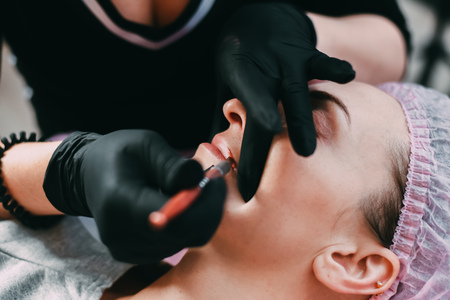Introduction: The Importance of Diversity in British Skincare
Britain is renowned for its vibrant multicultural society, where people from a myriad of backgrounds and heritages call the nation home. This rich tapestry of cultures brings with it a remarkable variety of skin tones, each with unique needs and challenges. As such, embracing diversity within skincare is not just a trend but an essential evolution for the beauty industry in Britain. Historically, many skincare products and routines have been tailored predominantly to lighter skin types, often overlooking the distinct requirements of medium to deeper complexions. However, as awareness grows and the population becomes increasingly diverse, there is a pressing need for inclusive skincare solutions that address the full spectrum of British skin tones. By recognising and catering to this diversity, both brands and consumers can ensure healthier, more radiant skin for everyone—regardless of background or pigmentation. The importance of inclusivity extends beyond individual well-being; it fosters confidence, representation, and a sense of belonging within the broader community. In this article, we explore why adapting skincare routines for all skin tones is crucial in modern Britain and how embracing diversity leads to better results for all.
2. Recognising Your Skin’s Unique Needs
In a multicultural society like Britain, recognising your skin’s individual characteristics is the first step towards an effective skincare routine. The UK is home to a rich tapestry of skin tones and types, each with its own set of common concerns influenced by genetics, environment, and lifestyle. Understanding these differences is key to embracing diversity in skincare.
Identifying Common Skin Types in the UK
The main skin types found across British communities include oily, dry, combination, normal, and sensitive. Each type can present differently depending on underlying skin tones and heritage. Here’s a breakdown of how to identify them:
| Skin Type | Characteristics | Prevalence in UK Communities |
|---|---|---|
| Oily | Shiny appearance, enlarged pores, prone to blemishes | Common among teenagers and young adults of all backgrounds; often seen in South Asian and Black British communities due to higher sebum production |
| Dry | Flaky texture, rough patches, tight feeling after washing | Frequently observed during cold British winters; prevalent among Caucasian and East Asian populations |
| Combination | Oily T-zone (forehead, nose, chin), dry cheeks | A cross-community occurrence; especially notable in mixed-heritage individuals |
| Normal | Balanced moisture, even texture, minimal sensitivity | Less common due to the UK’s variable climate; can be found in all ethnic groups |
| Sensitive | Easily irritated, redness, itching or stinging sensations | Affects all backgrounds but particularly noticeable in lighter skin tones due to visible redness; also influenced by allergies prevalent in urban environments like London or Manchester |
Tones and Undertones: The Spectrum of British Skin Diversity
The unique blend of cultures in Britain means that skin tones range from very fair to deep ebony. Recognising undertones—cool (pink/blue), warm (yellow/golden), or neutral—is crucial when choosing suitable skincare products and SPF protection.
| Skin Tone Category | Description & Common Communities | Main Concerns in the UK Climate |
|---|---|---|
| Fair to Light (Type I-II) | Pale ivory to light beige; common among White British and some Eastern European communities | Sunburn risk, sensitivity, redness from harsh winds or pollution |
| Medium (Type III-IV) | Olive to caramel; typical among Mediterranean British, South Asian, Middle Eastern populations | Hyperpigmentation, uneven tone post-acne or inflammation, dullness during winter months |
| Tan to Deep (Type V-VI) | Copper brown to rich ebony; seen in Black British, Afro-Caribbean, African, Southeast Asian groups | Darker spot formation (post-inflammatory hyperpigmentation), dryness exacerbated by cold weather and central heating |
Common Skincare Concerns Across Diverse British Communities
- Hyperpigmentation: Frequently reported among medium and deep skin tones due to acne scars or sun exposure.
- Sensitivity: Prevalent in fairer skins but also affects those with eczema or rosacea across all backgrounds.
- Dehydration: A universal issue during long British winters thanks to low humidity and central heating.
- Pores & Oiliness: Often a concern for younger people and those with oily or combination skin types.
A Culturally-Inclusive Approach Is Key
No matter your background or skin type, the first step is always self-awareness—observe how your skin reacts through seasonal changes typical of the UK. By identifying your unique needs within this diverse landscape, you’ll be better equipped to select products and routines tailored just for you.

3. Essential Skincare Steps for Every Tone
When it comes to skincare in Britain, embracing diversity means crafting routines that respect the unique needs of every skin tone while upholding universal fundamentals. Whether your complexion is fair, olive, brown, or deep, three cornerstone steps—cleansing, moisturising, and sun protection—are non-negotiable. Here’s a detailed guide on how these essentials can be tailored to suit all skin tones across the UK.
Cleansing: The Foundation of Healthy Skin
Regardless of your skin colour or type, cleansing is the bedrock of any effective skincare routine. British weather, with its mix of urban pollutants and shifting humidity, makes gentle but thorough cleansing crucial. For lighter skin, look for cleansers that preserve moisture without stripping natural oils; sensitive complexions may benefit from fragrance-free formulas. Medium to deeper tones often contend with increased oil production and higher risk of hyperpigmentation; opt for mild foaming cleansers or micellar waters to prevent irritation and post-inflammatory dark marks.
Recommended Cleansers by Skin Tone
| Skin Tone | Ideal Cleanser Type | Key Ingredients |
|---|---|---|
| Fair/Light | Cream or milk cleanser | Chamomile, glycerin |
| Medium/Olive | Gentle foaming cleanser | Aloe vera, niacinamide |
| Brown/Deep | Micellar water or hydrating gel | Ceramides, hyaluronic acid |
Moisturising: Locking in Hydration for All
The unpredictable British climate can leave skin parched or oily depending on the season. A good moisturiser should hydrate without clogging pores or exacerbating pigmentation issues. Fair skin may need lighter lotions during warmer months and richer creams in winter. Deeper tones are prone to dryness and ashy appearance, so opt for emollients with shea butter or squalane. Always patch test new products to avoid irritation.
Best Moisturisers by Skin Tone & Seasonality
| Skin Tone | Summer Recommendation | Winter Recommendation |
|---|---|---|
| Fair/Light | Gel-based moisturiser with SPF | Ceramide-rich cream |
| Medium/Olive | Lotion with antioxidants (vitamin E) | Squalane-infused cream |
| Brown/Deep | Lightweight oil (jojoba) | Shea butter balm |
Sun Protection: A Must for Every Complexion in the UK
A common misconception is that darker skin tones do not require sunscreen; this couldn’t be further from the truth. While melanin offers some natural protection, it does not guard against photoageing or hyperpigmentation caused by the British sun—even on cloudy days. Choose broad-spectrum SPF 30+ as a daily staple year-round. For fair skin, mineral sunscreens are less likely to irritate; medium and deep tones should seek out non-chalky formulations that blend seamlessly without leaving a grey cast.
By tailoring these essential skincare steps—cleansing, moisturising, and sun protection—to your specific skin tone and the unique challenges of life in Britain, you lay the groundwork for healthy, radiant skin all year round.
4. Top Product Recommendations for Inclusivity
When it comes to embracing diversity in skincare, the British market has made impressive strides in offering products that celebrate all skin tones. Whether you’re seeking hydration, sun protection, or targeted treatments, leading British and international brands are now prioritising inclusivity both in their formulations and shade ranges. Here’s a detailed analysis of top skincare products designed to cater for the rich spectrum of skin tones found across Britain.
Leading Inclusive Skincare Brands
Several brands have emerged as champions of inclusivity, ensuring their products address the unique needs of every skin tone. Below is a curated selection of standouts:
| Brand | Product | Main Benefit | Why It’s Inclusive |
|---|---|---|---|
| CeraVe | Hydrating Cleanser | Gentle cleansing without stripping moisture | Fragrance-free and suitable for all skin types, including sensitive and darker skin prone to dryness |
| The Ordinary | Niacinamide 10% + Zinc 1% | Targets hyperpigmentation and blemishes | Effective for uneven skin tones and post-inflammatory marks common in deeper complexions |
| Fenty Skin | Hydra Vizor Invisible Moisturizer SPF 30 | Broad-spectrum sun protection with hydration | No white cast on any skin tone; lightweight formula suitable for daily use by all ethnicities |
| Bioderma | Sensibio H2O Micellar Water | Mild make-up removal and cleansing | Packed with soothing agents ideal for sensitive skin, regardless of complexion depth |
The Importance of Broad-Spectrum Sunscreens
A common misconception in the UK is that darker skin doesn’t require sun protection. However, inclusive brands like La Roche-Posay and Black Girl Sunscreen offer formulas that avoid the chalky residue often left on deeper tones while providing robust UVA/UVB defence.
| Sunscreen Brand | Key Features |
|---|---|
| La Roche-Posay Anthelios UVMune 400 Invisible Fluid SPF50+ | Ultra-lightweight, invisible finish, non-greasy – blends seamlessly with all skin tones |
| Black Girl Sunscreen SPF 30 | No white residue, enriched with moisturisers like avocado and jojoba oils – specifically designed for melanated skin but suits everyone |
Treatment Solutions for Hyperpigmentation & Even Tone
Differin Gel (adapalene) and Murad Rapid Age Spot Correcting Serum are two examples of products addressing hyperpigmentation – a prevalent concern among many Britons with medium to deep complexions. Their advanced formulations work across the spectrum, helping to even out tone without irritation.
A Final Word on Patch Testing & Consultation
No matter your skin tone, always patch-test new products and consult with a qualified dermatologist when introducing actives or treating specific concerns. This ensures a routine that is as safe as it is inclusive – truly reflecting the diversity celebrated throughout Britain.
5. Expert Advice and Local Voices
When it comes to creating the best skincare routines for all skin tones in Britain, it’s essential to consider both professional guidance and the lived experiences of individuals across the country. We’ve gathered insights from leading British dermatologists as well as testimonials from people with diverse backgrounds, highlighting how tailored approaches can make a real difference.
Dermatologists’ Recommendations for Diverse Skin Tones
British dermatologists stress the importance of understanding unique skin concerns that may affect different skin tones. According to Dr. Priya Shah, a consultant dermatologist in London, “Melanin-rich skin often requires specific care to prevent hyperpigmentation and maintain an even complexion.” Meanwhile, Dr. Oliver Mason from Manchester points out, “Everyone should use SPF daily, regardless of skin tone. Sun protection is not just for lighter complexions.”
| Skin Tone | Common Concerns | Expert Recommendation |
|---|---|---|
| Lighter Complexions | Sensitivity, redness | Use gentle cleansers; avoid harsh exfoliants; daily SPF 30+ |
| Medium Complexions | Uneven tone, mild pigmentation | Incorporate vitamin C serums; regular hydration; SPF 30+ |
| Darker Complexions | Hyperpigmentation, dryness | Niacinamide-based products; richer moisturisers; SPF 30+ |
Real Stories: Skincare Journeys Across Britain
Listening to local voices brings invaluable perspective to skincare diversity. Amina from Birmingham shares, “Finding products that didn’t leave a white cast was a struggle until I discovered UK brands focused on melanin-rich skin.” James from Glasgow notes, “As someone with very fair skin and freckles, I learnt early on that daily sunscreen is non-negotiable—even when it’s cloudy!” Meanwhile, Priyanka from Leicester highlights her journey: “Combining traditional remedies from my South Asian heritage with modern British skincare has given me the best results.”
Key Takeaways from Local Experiences
- Product Accessibility: Many Britons value brands offering shades and formulas suitable for all skin tones.
- Cultural Heritage: Blending traditional practices with contemporary routines is increasingly popular.
- Community Support: Online forums and local groups help people share tips and product recommendations tailored to Britain’s unique climate.
The Importance of Personalisation in Skincare Routines
The consensus among experts and everyday users is clear: embracing diversity means recognising individual needs and seeking advice rooted in both science and real-life experience. By listening to British dermatologists and the vibrant community around us, everyone can discover a routine that celebrates their unique skin.
6. Celebrating and Supporting Diversity in the Skincare Industry
As Britain becomes ever more multicultural, the skincare industry is gradually reflecting this vibrant diversity. However, true inclusivity requires more than just a few token products on the shelves. Ongoing trends show a growing demand for representation—not only in product formulations but also in advertising and brand leadership. Consumers are seeking brands that understand the unique needs of every skin tone, from fair to deep, and actively celebrate British diversity.
Why Representation Matters
Representation is crucial for building trust and connection with customers. When people see themselves reflected in marketing campaigns or find products tailored to their specific concerns, it sends a powerful message of acceptance and respect. In the UK, where communities from South Asian, Black, East Asian, Middle Eastern, and mixed-heritage backgrounds make up a significant part of the population, inclusive beauty is not just an ethical choice—its a business necessity.
Ongoing Trends in Inclusive Skincare
| Trend | Description | Brands Leading the Way (UK) |
|---|---|---|
| Wider Shade Ranges | Foundations, concealers, and tinted moisturisers now come in an extended range of shades. | Fenty Beauty, MAC Cosmetics |
| Customised Formulations | Products targeting melanin-rich skin concerns like hyperpigmentation and uneven tone. | The Ordinary, Epara Skincare |
| Diverse Representation in Advertising | Campaigns feature models from various ethnic backgrounds and skin tones. | No7, Dove |
| Cultural Sensitivity & Local Ingredients | Brands incorporating ingredients rooted in global traditions (e.g., turmeric, shea butter). | Dr. Botanicals, Shea Moisture |
Championing Inclusive Beauty Brands in Britain
If you want to support diversity within skincare, consider these practical steps:
- Research Brand Values: Look for companies with transparent commitments to inclusion and representation.
- Support Local British Brands: Many homegrown businesses are leading the way in catering to all skin tones.
- Share Your Experiences: Use social media platforms to highlight positive encounters with diverse beauty brands or call out gaps where improvements are needed.
- Advocate for Change: Engage with retailers and ask them to stock a wider variety of inclusive products.
The future of skincare in Britain lies in embracing all shades and types of skin. By choosing to support truly inclusive brands and demanding better representation, consumers have the power to shape an industry that genuinely celebrates diversity—a reflection of modern British society itself.


